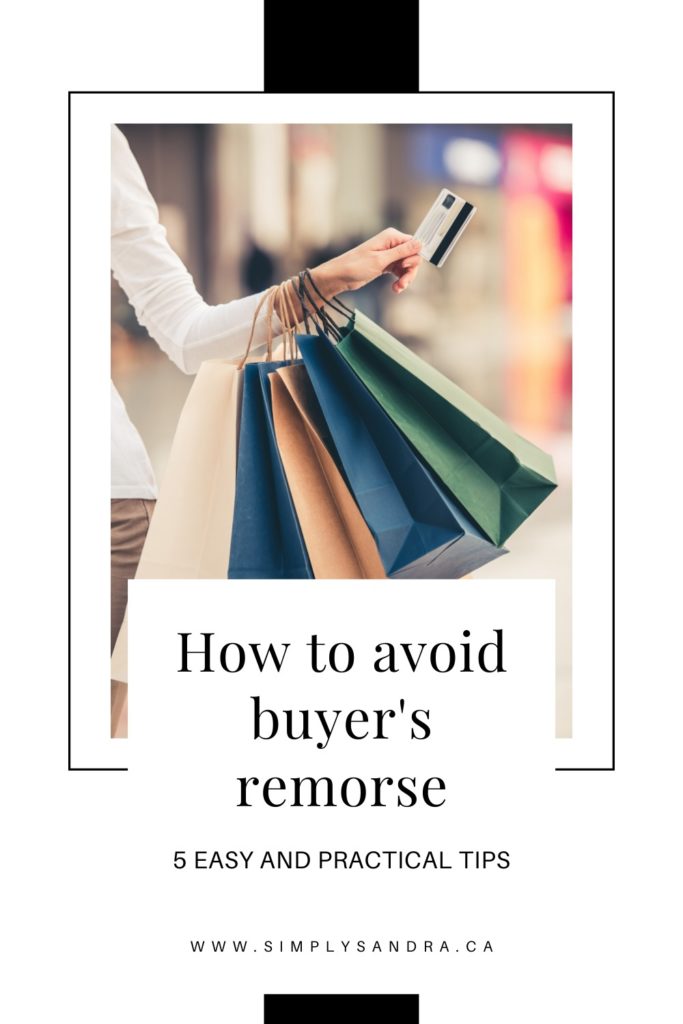
One of the worst feelings is truly buyer’s remorse. It’s totally avoidable but difficult to escape especially in a day and age where social media and influencers litter our feeds with their haul videos and links.
I constantly struggle with being mindful and intentional with my purchases. This is especially the case because I just love shopping. I am also always consuming content that perpetuates my consumeristic tendencies. This is an honest and realistic approach to reassessing your purchasing habits from someone who struggles with these issues. I find there is a lack of content created by non-fundamental-minimalists who also want to exercise mindful spending while also enjoying to shop every now and then.
Here are 5 tips to practice in order to avoid the dreaded buyer’s remorse.
1. Understand why you buy
This is something that we all can benefit from – figure out WHY you buy things. If you’re an avid shopper like I am this is especially important if you want to limit your spending and consumerist habits.
For many of us, stress and boredom is a huge trigger that can often propel us into a shopping spree. I find that when I am very burnt out at work or super stressed, I am more likely to be impulsive with my spending, buying things that I don’t need and often will regret.
One thing that I’ve found helpful is to find ways to deal with my burn out that don’t necessary involve money or something or at least something that doesn’t spiral in terms of expenses (i.e. a manicure day). Some ideas are: going for a walk, baking and getting my nails done. Pick something that you love to do and that can be done for free or for a set amount (not shopping). This really helps avoid stress-shopping-sprees which can often result in buyers remorse.
2. Keep yourself busy
As a blogger, I find the lifestyle blogging community is a big influence in the buying habits of my demographic (the millennial female). This can be very problematic especially when we spend so much time on social media and on instagram scrolling through ads. Lifestyle bloggers and Youtubers are in the business of selling things and they rely on their followers to make these purchases for their livelihood. This is why it is so important to find hobbies that are not just watching things like product reviews or haul videos. Watch a good TV series, take up knitting, start to bake, play a sport, do something that will get you away from the perpetual cycle of being sold a lifestyle that you have to spend for. This is pretty key in curbing your spending and minimizing buyer’s remorse.
3. Keep a running wish list
I am a big proponent of planning and carefully contemplating a purchase prior to making it. Everyone has their own vice, whether it be clothes, makeup, food. Figure out what your vice is and focus on that category first. For me, this is certainly clothing. I keep a running list on my phone with dates of items I want so that whenI am ready to make a purchase I can do so from that list.
I am supposed to be on a no-buy this year and one of my rules was that I must have this item on my wishlist for at least a month prior to making the purchase. This is a great tip and really does help with buyers remorse. If you still want this item after a week or a month of consideration it is less likely going to be a regret for you. The important thing is to take your time and to avoid the shopping-spree-rush feeling that can often lead to buyers remorse.
4. Create and follow a budget
Further to tip number 3, planning your purchases goes hand and hand with budgeting. Budgets are so personal which is why I don’t believe in a “one-size-fits-all” method when it comes to budgeting. Some people will plan their finances for the month and others will plan per paycheck. Whichever you choose, make sure that you set your intentions at the outset and your goals and work towards sticking to that plan in order to avoid impulse shopping sprees.
5. Keep your receipts
One common sense solution to buyers remorse is to make sure you can return the item you purchase! Of course, I am referring to tangible products as opposed to non-refundable services. Make sure you understand the retailers return policy prior to making the purchase and make sure you are able to return the product just in case you regret your decision once you bring the product home. A big part of this is keeping your invoice or receipt. I wrote a post about virtually decluttering your emails and one of the things I mentioned was decluttering your emails by setting up folders to organize your emails. If you received an email invoice for an online purchase (or an in person purchase) make sure you store it away in a folder so that it is easily accessible to you should you choose to return to the item.
I am hoping these tips are useful and of value to anyone experiencing re-occuring buyer’s remorse. This feeling is totally avoidable it’s all about implementing effective strategies and planning your purchases before you make them.
Let me know what you think about these tips and what you usually do to avoid buyer’s remorse yourself in the comments!

